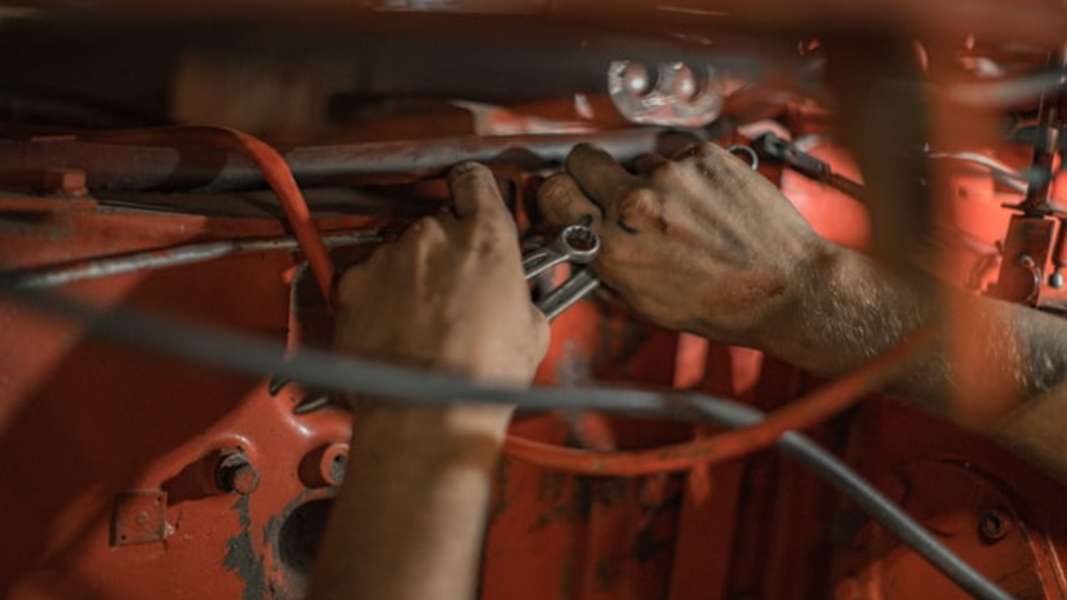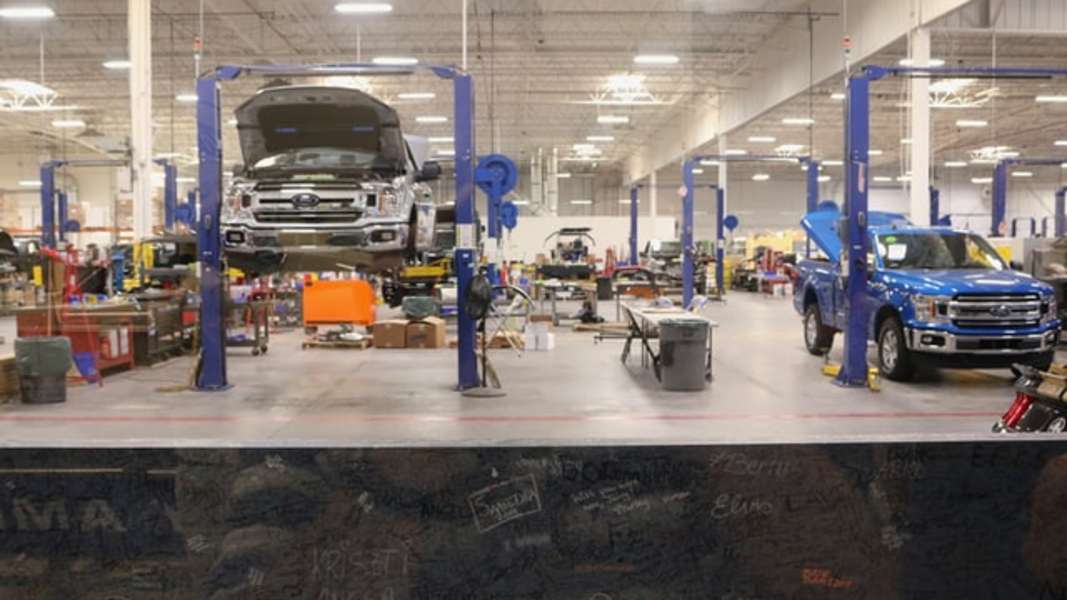
How To Hire A Mechanic
May 19, 2022

A mechanic is focused on maintaining and repairing vehicles such as cars, lorries, buses, or boats.
Using their specialised knowledge of engines and automotive vehicles, mechanics work on the upkeep and adjustment of parts of the vehicles to ensure their smooth running within designated safety limits.
Mechanics can troubleshoot and determine the root cause of issues. Using their in-depth understanding of how a vehicle works, mechanics can fix and resolve issues around the vehicle's performance, ensuring it runs at its optimum.
When hiring a mechanic, you need to be sure that the individuals you hire demonstrate the necessary skills, capabilities, and knowledge required to succeed in their role.
This article explores these skills and abilities and also what tests you can use in your recruitment process to evaluate candidates against these.
What should a mechanic be able to do?
Mechanics work on the upkeep of automotive vehicles. This covers a broad range of tasks and duties such as testing, servicing, and repairing systems according to recommended safety limits and manufacturers' instructions.
If the cause of an issue is unknown, mechanics need to inspect vehicles for damage, and then diagnose and determine the cause of the problem, for example, an issue with the vehicle's ignition system, control systems, or electronic systems.
Mechanics also need to adhere to a checklist to ensure that all parts of the vehicle's systems are adequately checked in the correct order and meet safety limits, such as timing belts, spark plugs, tyres, fuel systems, brakes, and wheel bearings. If any part of the vehicle is outside of the safety limits, mechanics work to repair or source and replace any faulty parts, contributing to the servicing and safe upkeep of the car.
Mechanics also work with others in their team to plan work, schedules, and delivery of parts to coincide with their work availability, liaising with their customers to discuss the performance of their vehicles, possible issues, and when future repairs can be booked in.
A large part of a mechanics' role is focused on inspecting vehicles. Using their knowledge of the visual aspects of a vehicle and its engine, mechanics inspect the vehicle to diagnose any faults or cracks in fuel systems, abrasions, broken cables or fibers, or damaged gaskets.
Their knowledge means that mechanics can then provide estimates on the cost of work and parts required to their customers, ensuring that their clients are kept informed and satisfied with the work to be carried out.
Skills to look for in a mechanic
There are several critical skills that a mechanic should possess, and these are the skills that, as a recruiter, you want to assess your candidate pool against. When included in your recruitment process, evaluating candidates against these skills will lead to better hiring decisions.
These skills cover:
Reading comprehension: understanding the meaning of written words and instructions in manufacturers' manuals, assembly instructions, or documented checklists and procedures means that mechanics repair and correctly service vehicles.
Logical thinking: the ability to think logically and critically when faced with a problem. A large part of a mechanics' role is to use their inductive and deductive reasoning skills to identify relationships or patterns and use this to solve issues.
Verbal communication skills: the ability to convey information to their clients or to vendors ensuring that the correct message has been communicated.
Microsoft office suite: having the skills to use all applications within the Microsoft Office suite to ensure costs are tracked, information is conveyed to clients and vendors, and any reports are documented in accordance with their employer's guidelines.
Active listening: focusing on what their clients are telling them, asking relevant questions, and ensuring they have enough information to carry out their maintenance or repair on the vehicle.
Useful abilities for a mechanic
To be successful in their role, mechanics must demonstrate wide-ranging abilities. These focus on their practical abilities in solving problems and their ability to manage their daily tasks.
Written comprehension: mechanics need to understand written instructions and pieces of text, using what they have learned from this to solve problems and decide on possible solutions.
Attention to detail: focusing on every detail of an issue and paying attention to all steps and instructions is an integral part of a mechanics' role. When repairing and maintaining vehicles, mechanics need to ensure that they pay due care and attention to all aspects of servicicing, ensuring that all parts are fixed in the correct order.
Problem-solving: using both inductive and deductive reasoning in their approach to problem-solving ensures that mechanics can critically evaluate issues and use their logical reasoning capabilities to solve problems.
Oral Comprehension: mechanics need to be able to explain issues and repairs in a way that others can understand, bearing in mind that some may not possess the technical expertise. The ability to vary their communication style and expressions according to who they communicate with is necessary to ensure understanding.
Logical thinking: when identifying issues and their root causes, mechanics need to demonstrate logical reasoning in their ability to diagnose a problem. Determining orders of sequences and using this to predict where issues may occur helps mechanics become more efficient in their role.
Which soft skills tests could I use to hire a mechanic?
There are a few soft skills tests that you can use as part of your recruitment process to determine whether applicants demonstrate the necessary soft skills to be an effective mechanic.
Time management: this test is a scenario-based assessment that determines an individual's ability to manage their time to meet deadlines and prioritise tasks. The test gives a good indication of whether candidates can deal with working under pressure and be effective in situations where working to deadlines is essential.
Decision-making skills: making decisions based on the outcome of their investigations is a vital part of being a mechanic. The decision-making skills test provides recruiters with a way of determining whether individuals can use their critical thinking skills to make the best decisions and come to logical solutions.
Communication skills: the communication skills test evaluates an individual's ability to actively listen to what others are saying, respond appropriately, and be aware of non-verbal communication cues. Mechanics need to work with their team members, clients, and suppliers, so demonstrating strong communication skills is essential to be successful in their role.
Which technical or aptitude tests could I use to hire a mechanic?
When hiring a mechanic, it is important to assess candidates on the required technical skills and aptitudes for the role.
Test that you can use to do this include:
Logical reasoning: a test used to determine an applicant's aptitude in identifying patterns or relationships between information and using this to solve issues or problems. The test helps you identify those candidates who can use their logical reasoning to recognise patterns or trends in data or information.
Mechanical reasoning: this test helps you evaluate a candidate's ability to solve problems using mechanical engineering concepts. As the test is timed, candidates work under pressure to identify the issue at hand and use their knowledge of mechanical principles to determine the correct answer.
Spatial reasoning: a test that enables you to determine whether candidates can mentally visualise 2D objects in a 3D format. Having spatial awareness is vital for a mechanic when servicing and repairing parts or machinery such as an engine. Incorporating a spatial reasoning test in your recruitment process provides practical information on whether candidates can use this ability when solving problems.
Microsoft word test: designed to assess an individual's understanding of Microsoft word and whether they can use the application to its full potential as relevant to the role requirements.
Our recommended test battery for a mechanic
Logical reasoning: a timed test that provides you with an insight into a candidate's aptitude for problem-solving using non-verbal information. The timed nature of this test means that individuals' ability to work under pressure to identify issues and solve problems is also assessed.
Mechanical reasoning: enabling you to determine whether candidates demonstrate awareness of mechanical engineering principles. An important ability to have as a mechanic, this test also provides a better understanding of an individual's cognitive abilities.
Time management: using work-based scenarios; this timed test assesses whether candidates can prioritise tasks to meet deadlines. The test also gives you an indication of how well individuals can work under pressure.
Communication skills: in the communication skills test, individuals are given scenarios that enable them to demonstrate the way they communicate, whether they can actively listen and adjust their communication style based on the people they are communicating with, for example when dealing with conflict situations.
For more information, have a read through our mechanic test guide.
Boost your hiring power.
Start using Neuroworx today.
Talk is cheap. We offer a 14-day free trial so you can see our platform for yourselves.
Try for free




